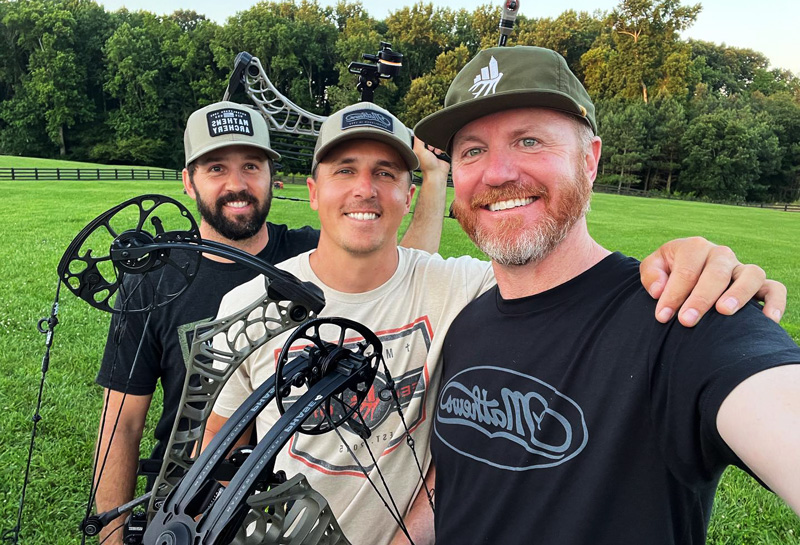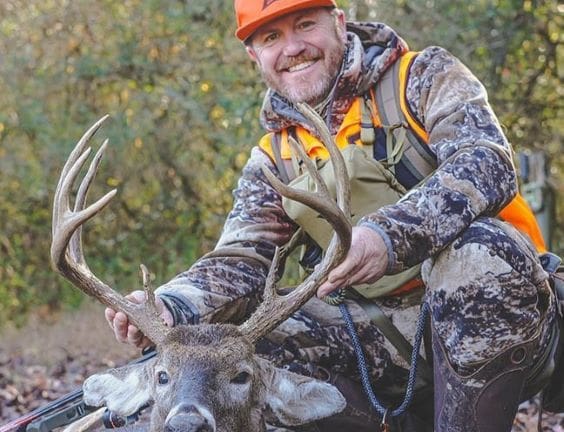If you’re serious about bowhunting and monitor social media at all, you are likely familiar with SEEK ONE, a group of hunters who have brought suburban and urban hunters together, shared tactics and tips, and popularized the idea that sometimes the best place to hunt is exactly where you are. Not to say far-off forays to chase bucks isn’t fulfilling and a sometimes smart move, but there are more big deer around populated areas than you might think—and SEEK ONE proves it time and again.
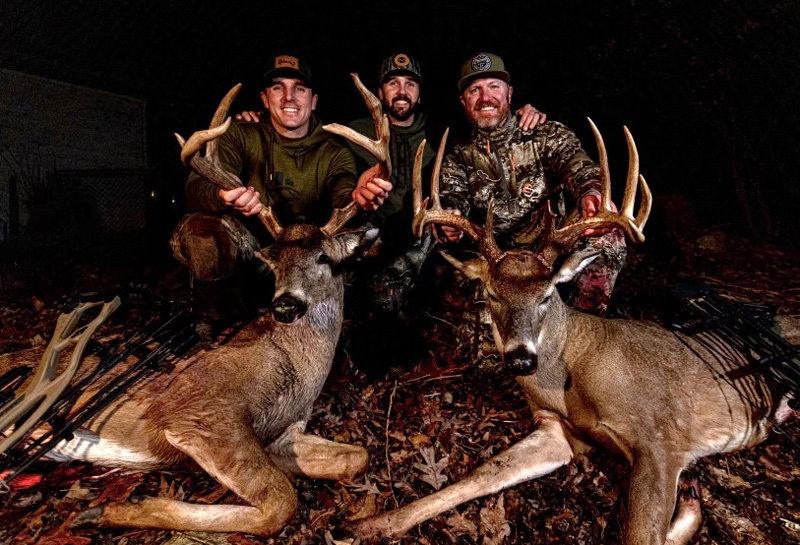
NEXUS: How did it all start?
Golightly: Lee (Ellis) found a gigantic deer in the Atlanta suburbs in 2014. Drew (Carroll) and Lee discussed producing a high-quality show with faith being a huge component. Drew spent his entire season documenting the hunt for “Charlie,” and toward the end of the season, the stars aligned. The hunt for ‘Charlie’ was the first, true production of SEEK ONE.
NEXUS: Did you always hunt? Did you grow up hunting?
Golightly: My father introduced me to hunting when I was seven years old. I shot my first buck at nine years old with a 12 gauge shotgun. I was obsessed from day one and always looked forward to getting checked out of school for the opener. When I turned 13, I thought I knew everything (lol) and told my dad anyone could shoot a deer with a rifle at 100 yards. I wanted a bow for my birthday. I ended up getting a bow and shooting three does my first sit. I was obsessed with archery hunting from that day forward. My first three bow kills were urban deer.
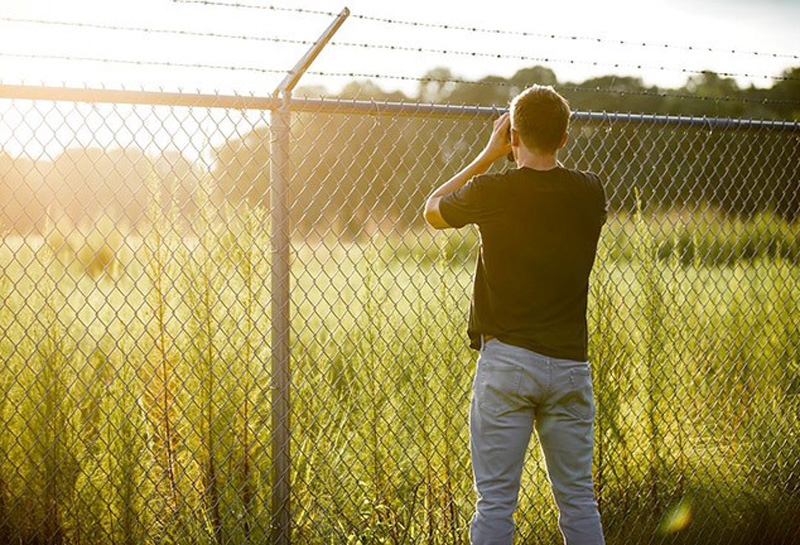
NEXUS: How did Lee, Drew and you all meet and become SEEK ONE?
Golightly: Early on, before the days of social media, there was a local Georgia forum on Georgia Outdoor News. It was a forum for deer hunters to share their stories and pictures. Through acquaintances, the three of us connected as we found out we were hunting similar areas in the metro Atlanta area. As we continued to share our passion for the outdoors in an urban setting, our friendship began. One of our first experiences together was when Lee helped me retrieve one of my largest deer to date. That started a relationship of sharing information and helping each other be successful in the suburbs.
NEXUS: How did the suburban hunting niche take place?
Golightly: The largest appeal of our style of hunting is its accessibility to everyone, if you’re willing to put in the effort. Hunting is often a game of time commitment and access, both of which are very limited to the average hunter who works a 9-5 job and may not have a piece of ground to hunt. Hunting close to home allows us to hop in the woods before or after work on a daily basis, and the private-by-permission access opens up the door to virtually unlimited hunting ground. This, coupled with the fact that suburban pockets of woods can often protect a buck long enough for it to reach maturity, creates an appealing and addicting style of hunting. I personally grew up hunting Hancock County in Sparta, Georgia, but once I had a family and my time became more limited, the suburban style began to make a ton of sense. There is also the unique scenario in Atlanta where the genetics in the metro areas are far better than anywhere else in the state. Other states—take Ohio for example—have great genetics in rural parts of the state. If trophy quality is what you’re pursuing, then you have equal or better odds in farm country Ohio. That’s not the case in Georgia. Metro Atlanta is drawing hunters from all over the state because of the potential for giant bucks, and that has fueled this urban hunting “craze”.
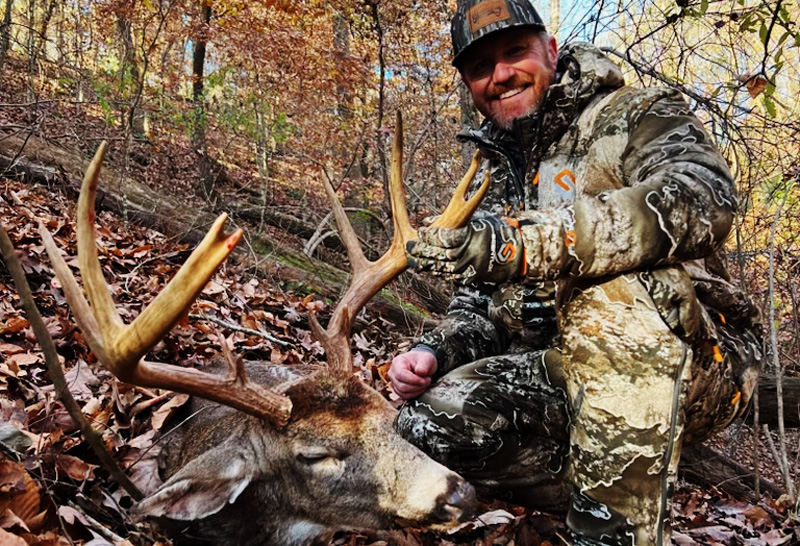
NEXUS: What are the advantages/disadvantages of hunting suburbia?
Golightly: It is awesome to be able to enjoy God’s creation so close to home, but it does have its disadvantages. There is something to be said about hunting a rural environment, where it is extremely quiet, and you can’t hear anything but nature. Hunting in an urban environment you pretty much always must deal with the noise pollution from leaf blowers, barking dogs, traffic, people, etc. There are several added challenges to suburban hunting that you must overcome to be successful. Most importantly, obtaining hunting permission. This can be difficult and time consuming. There are also just a lot more precautions you must take when hunting in populated areas with tight property lines, and there’s a lot of unavoidable drama to contend with.
NEXUS: Did you grow up in the Atlanta area?
Golightly: I was born in Nairobi, Kenya, but grew up on the suburbs of Atlanta.
NEXUS: What was your most memorable hunting experience?
Golightly: My most memorable hunt has to be my first deer with my dad. There is nothing that will ever top the feeling of that morning taking a four pointer with my dad. I have been extremely blessed to take some large deer over the years, but the memories of hunting with my dad will always top those.
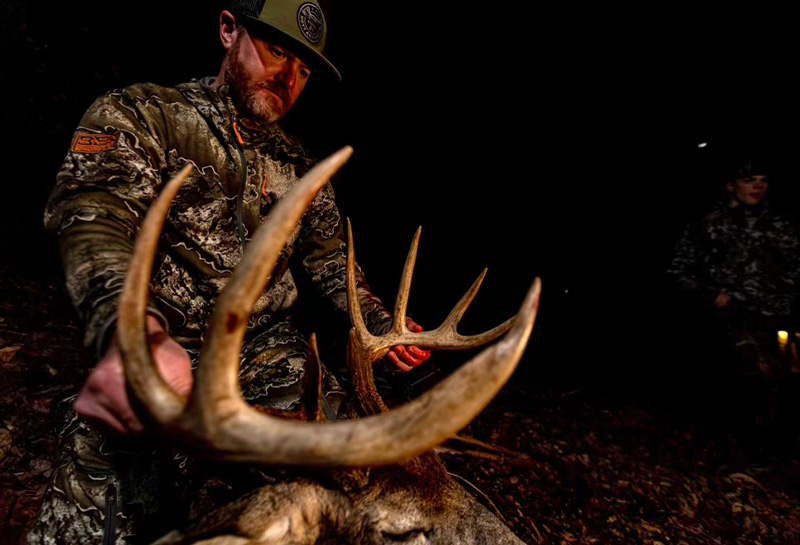
NEXUS: Tell us about Doe-mageddon and your food shelter endeavors.
Golightly: Every year, typically towards the end of the season, we host a doe management hunt. It is typically a 2 to 3 day event, and all of the deer that we harvest we have processed then hand-deliver it to ministries and homeless shelters in downtown Atlanta. The Venison Project is a nonprofit we started years ago to help the community and feed those in need. The Venison Project is something we are extremely passionate about. Not only are we helping the community, but also managing the deer herd in areas that are extremely overpopulated with animals. We hope that The Venison Project will grow into other cities over time.
NEXUS: Will it always be suburban and urban hunting for you? Or would you settle with a property to manage someday?
Golightly: SEEK ONE has some very exciting things on the horizon for 2024. Urban hunting will always be a huge part of our brand, but we are definitely venturing into new styles of hunting. Drew and I have been enjoying our time out west chasing elk, mule deer, and antelope, and will continue to pursue those adventures. We feel the next big chapter for us is learning the land management side, while continuing to be open to new hunting experiences.
